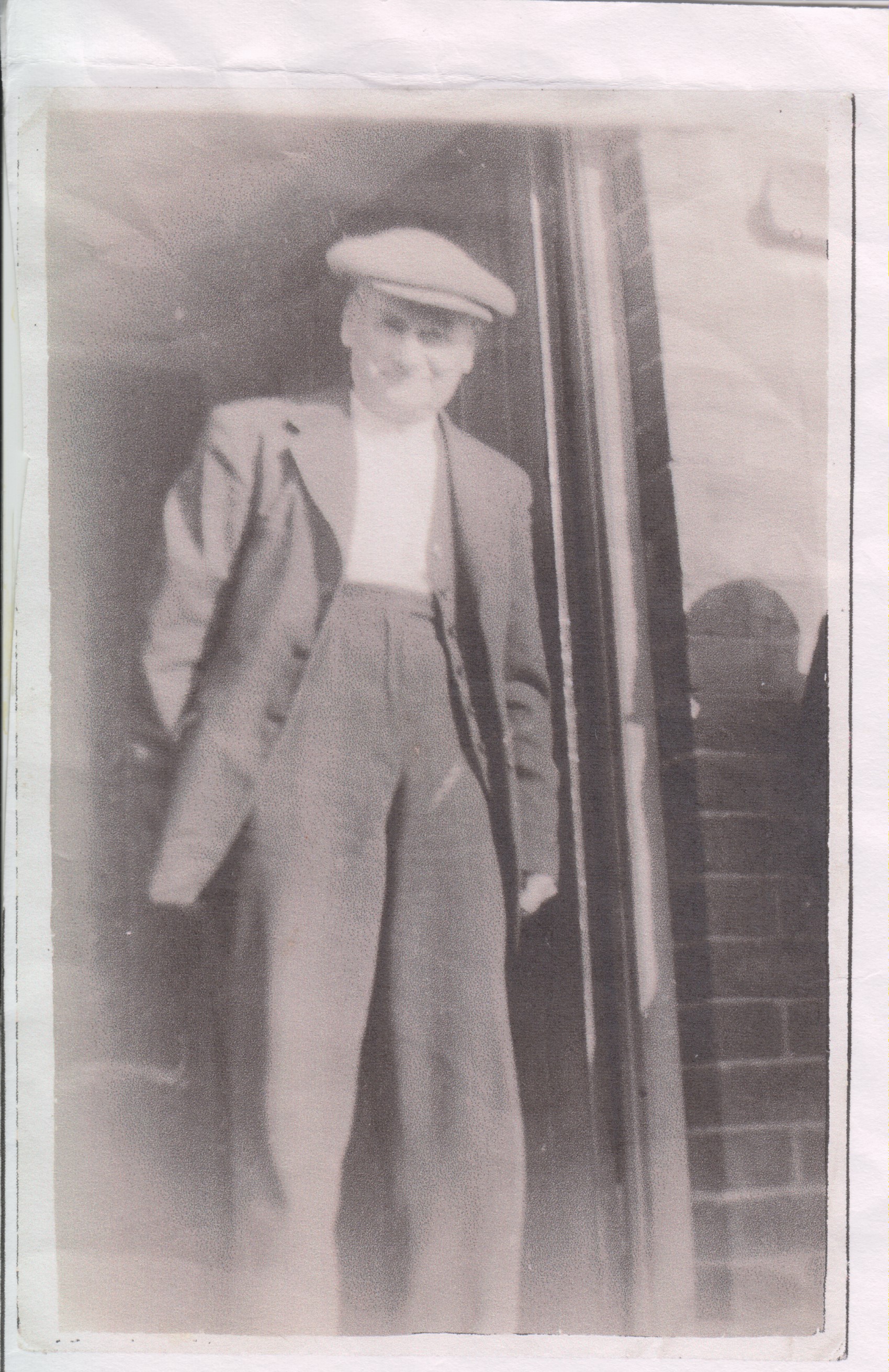
Maureen Hunt told us about her grandfather, William Smith.
William was born around 1883 in Wirksworth, Derbyshire and worked as a bath attendant at Matlock before the war. He volunteered early in the war and possibly joined the High Peak Rifles (later 6th battalion, Sherwood Foresters). He recounted to his family the horrors of war, having fought at the Battle of Ypres. Later in life he complained of chest pains as a result of having been gassed in the trenches.
He was taken prisoner by the Germans on 21 March 1918, during the German Spring Offensive. He did not return to England until 1919. Gardening became a favourite pastime, helping him to cope with the mental and physical scars of war.
William died in 1962 at almost 80 years of age.
Explore more memories from the ribbon
-
Septimus Allan
Vicky Hurwood’s great uncle, Septimus Frederick Herbert Allen was born in Richmond on 1 December 1891. He was the seventh son of Leonard and Mary Allan. He was awarded the 1915 Star and so joined the British Army before the introduction of conscription. Arriving in France on 25 January 1915, he initially served with the Army Service Corps before being transfered to the 9th battalion, Northumberland Fusiliers. 48457 Private Septimus Allan was Killed in Action on 25th November 1917 and having no known grave he is one of the 35,000 men commemorated on the Arras Memorial. His name is also listed on the Richmond War Memorial.
-
Harry Binks
Story from Harry Binks, via Val Slater of Coverdale. Harry was named after his father, whose story is outlined below. My father, Harry Binks, was born at Highfield in Carlton on 11 September 1893, a short while before his twin brother Thomas. The 1901 Census recorded the family still at Highfield where my grandfather Thomas was farming, but shortly afterwards they moved to Lane House on the edge of the village. Harry went to Horsehouse school. In 1911 the family was living at Lilac Farm (House) – now Abbots Thorn – but Harry was not at home. He would have been working away as a farm labourer in Kettlewell; however he has not been found on the Census. On 11 December 1915 Harry enlisted at Leyburn. His address was Lilac House, Carlton and next of kin his mother Elizabeth Binks – his father having died in 1912. Harry’s occupation was farm hand. He was assigned to the Yorkshire Regiment – “The Green Howards” – and posted to France in October 1916, fighting at the Western Front until April 1917. Harry returned to France in September 1917 where the main focus was the Third Battle of Ypres, including the infamous Battle of Passchendaele. In December Harry was injured by gun shot wounds to his right thigh. After treatment he was deemed no longer physically fit for war service and discharged to the reserve in June 1918. At the end of the war Harry was in the Slough area where a number…
-
Captain Robert Murray
Robert Henry Murray lived with his family lived at West Cottage, Richmond. He was educated at Richmond Grammar School, and attended Selwyn College, Cambridge – rowing in the college boat at the Henley Regatta immediately before the outbreak of war. He was commissioned as a Second Lieutenant in the Yorkshire Regiment on 8th October 1914, but was quickly promoted to Captain on the 3rd of December 1914. Attached to the Royal Munster Fusiliers, he was Mentioned in Despatches while at Gallipoli. Captain Murray was killed while attending to a wounded man of his Company on the fire-step of his trench. Captain Murray fell in action on 7th July 1916 and is buried at Philosophe British Cemetery, Mazingarbe, Departement du Pas-de-Calais.
